
Haworthiopsis
Formerly named Haworthia, the succulent genus Haworthiopsis is native to regions in the Eastern Cape of South Africa. Although succulents are not typically considered great houseplants due to their need for higher light levels, Haworthiopsis will be perfectly happy in front of a sunny northfacing window in your home. They are also slightly more tolerant of lower light than other geometric succulent species that quickly lose their shape, making them ideal for beginners.
Haworthiopsis attenuata is one of the most widely grown species. But you can also look for the slightly rarer Haworthiopsis fasciata for something a little different. Water sparingly, only when the soil is completely dry. Be careful not to overwater as this can lead to root rot. Use a well-draining potting mix designed for succulents and cacti, especially when repotting.
Streptocarpus
Commonly known as Cape primrose, Streptocarpus plants have a captivating woodland look and adorable blooms in a range of colours. They were first discovered in Knysna in the 1800s but are spread across many parts of South Africa where they are appreciated for their adaptive nature and vigorous flowering. Genetically related to the ever-popular African violet, they make wonderful houseplants that can flower almost all year round with the right care.
Streptocarpus likes to be kept moist, but never wet. Water when the top layer of soil feels dry and make sure the pot has drainage holes to avoid waterlogging. They grow and flower best when given plenty of bright indirect light indoors to match conditions in their native habitats. Apply a water-soluble fertiliser every 2-4 weeks during the growing season for the strongest possible flowering and propagate from individual leaf cuttings to expand your collection.
This story is from the {{IssueName}} edition of {{MagazineName}}.
Start your 7-day Magzter GOLD free trial to access thousands of curated premium stories, and 9,000+ magazines and newspapers.
Already a subscriber ? Sign In
This story is from the {{IssueName}} edition of {{MagazineName}}.
Start your 7-day Magzter GOLD free trial to access thousands of curated premium stories, and 9,000+ magazines and newspapers.
Already a subscriber? Sign In

Fixing things in 2025!
One should start a new year by sitting firmly on one's throne, not breaking it and falling off!
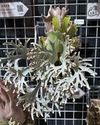
Silver staghorn ferns at platinum prices
When we think of a staghorn fern, Platycerium bifurcatum, which can be found in many South African gardens, usually comes to mind.

Tic Tac Toe
Keep children (and adults) busy for hours with this stylish game for the patio.
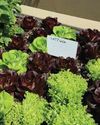
Let's change the way we think about food
Healthy food is all about preparing fresh ingredients in the simplest (yet tasty) way. Today's balanced diet includes lots of fiber, plenty of fruits and vegetables, and proteins in the form of meat, like lean pork. Keep it interesting, and you can't go wrong.
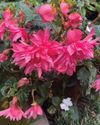
Grow Wayne's favourite things
Midsummer is when your garden is at its lushest. It's always playtime in the garden, and whether it's lying under a tree or finding more stuff to grow, gardens are our safe space for self-expression and joy.
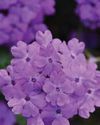
THE BEST OF SUMMER
Summer annuals offer more than just colour, texture, and variety in a garden.
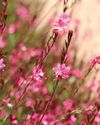
PLANT A COLOUR explosion!
Angelic angel wings and a dwarf morning glory can keep colour all around you from spring to autumn, and will be back to do it all over again next year...
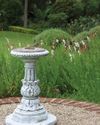
SAVING TIME in the garden
Just like Jamie Oliver can teach us to cook a meal in 15 minutes, there are ways to garden in 15 minutes or less. Here are some of our top time-saving tips to make gardening easier, quicker and more fun.
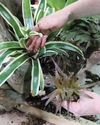
FUN PROJECTS for the New Year!
If you want a wow factor for your next party, try revamping a piece of driftwood into something amazing with these few steps.

Evolving for LONGEVITY
A continuously transforming garden has longevity, which is certainly true for the garden at Brahman Hills in the Midlands of KwaZulu-Natal.